Table of Contents
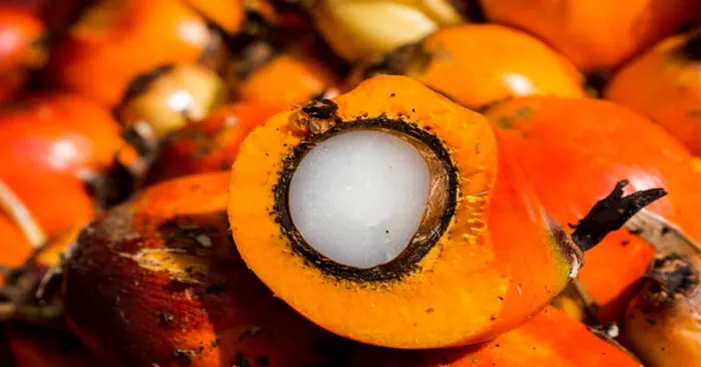
Palm oil is one of the most widely used vegetable oils in the world.
It is used in a variety of products from food to cosmetics and even biofuel.
Many people are unaware that there is a difference between processed palm oil and palm oil, and understanding this difference is important for making informed decisions when it comes to personal health and environmental sustainability.
In this blog post, we’ll explore the differences between processed palm oil and palm oil and discuss why understanding this distinction is important.
General facts about palm oil:
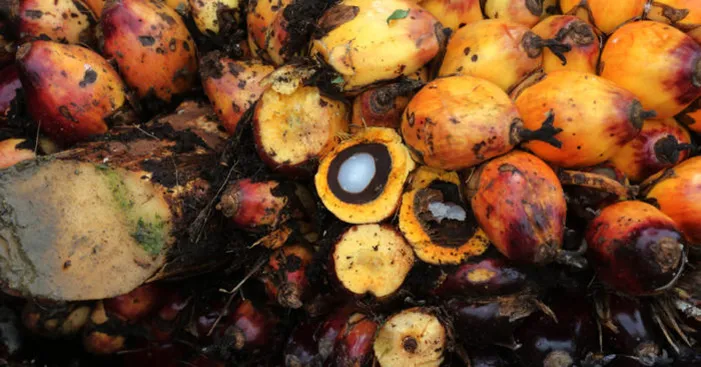
Palm oil is often described as “vegetable oil” or “palm fat” on a product’s label which is why most people don’t identify it.
It is a delicious and versatile vegetable oil obtained from the palm tree fruit known scientifically as “Elaeis Guineensis”.
These fruits are very similar to dates but they contain more oil and grow mostly in Southwest Africa and South West Asia.
This type of palm tree grows up to 100 ft (30m) and produces an average of 12 bunches each weighing around 70 lb (30 kg).
Every 220 lbs (100 kg) of palm fruit can yield around 50 lbs (23 kg) of oil.
This means that an average palm tree can produce up to 190 lbs (86 kg) of palm oil every year.
The top producers of palm oil are Indonesia and Malaysia and it has become a very popular vegetable oil around the world.
For instance, processed palm oil has a high smoking point which makes it perfect for barbecue and baking.
Most of the time, palm oil is used in pastries as a substitute for butter because of its low price and identical crispy final products.
For instance, it is a common ingredient in many protein bars, cereals, organic products, and commercial cakes and brownies.
However, for vegetable oil to have a long shelf life, it is most likely to be oxidized, refined, or hydrogenated which makes it carcinogenic.
Unfortunately, most of the palm oil in the market is hydrogenated so it has high saturated fats, which are bad for cardiovascular health in general.
However, these side effects are mostly linked to processed palm oil and don’t apply to cold-pressed/organic palm oil.
Why is processed palm oil bad for you:

Where is processed palm oil used?
Because of its long shelf life and low production cost, it is hard to miss refined palm oil in our food.
In fact, more than 60% of the edible products in the store contain palm oil.
It is often very difficult to know if a product contains palm oil because it is often labeled under other names.
It is a main ingredient in salted cake recipes, peanut butter, pastries, chocolate bars, toasted rolls, cereals…
Not only that but refined palm oil is also used in frozen desserts, whipped cream, pizzas, and ready-to-use sauces.
In cosmetics, this oil is present in lipsticks, lip and eye pencils, shower gels, hygiene products, shampoos, and moisturizing creams.
Basically, you can find it in any cosmetic product or food that needs a sort of oily consistency as it won’t spoil fast and doesn’t cost much.
Therefore, we don’t necessarily consume refined palm oil directly but it goes unnoticed most of the time.
By ingesting any of the above products we are ingesting a certain quantity of refined palm oil daily.
Now the bad thing about refined palm oil is its high content of saturated fats and trans acids (after hydrogenation).
These types of fats can cause many bad health issues mostly because they raise the bad cholesterol in the blood.
Why do manufacturers use palm oil?
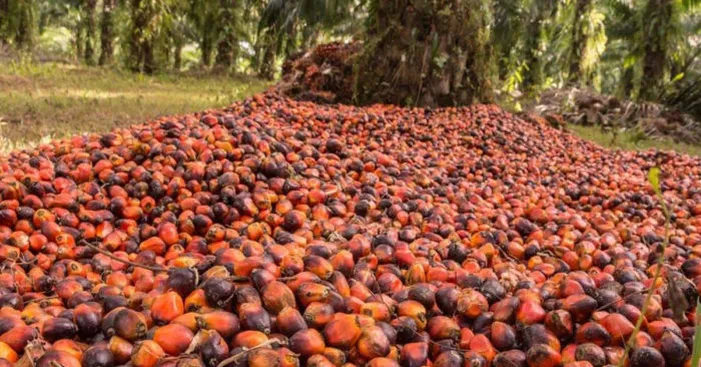
One of the things that manufacturers are looking for when choosing a basic oil for their product is solid consistency.
In other words, the oil that they use for their long shelf life products needs to remain “thick” at room temperature to make it suitable for storage outside the fridge.
Also, the oil that manufacturers use needs to provide a soft and melting texture, especially when used in pastries.
In addition, it needs to have a long shelf life with a neutral taste that doesn’t interfere with the main flavors.
Finally, it needs to be profitable by yielding more at a lower cost.
Processed palm oil has a long shelf life, neutral taste, stay consistent at room temperature, and doesn’t cost much to produce or buy.
In fact, 1 hectare of palm tree plantation provides 4 tons of palm oil which is higher than rapeseed oil (0.6 tons) and soy oil (0.5 tons).
Because processed palm oil checks each of the main needs, it is by far the best choice for manufacturers.
Harms the health:

But, their many concerns about it so the question becomes: is palm oil bad for you?
Generally speaking, vegetable fats are usually healthier than animal fats, however, this is not the case for palm oil.
For instance, more than 50% of palm oil fats are saturated which raises bad cholesterol levels.
The thickness of the oil generally indicates that it contains saturated fats.
At room temperature, palm oil is thicker than sunflower oil and olive oil which makes it less healthy.
Because of this high content of saturated fats, processed palm oil is bad for you and can lead to many health issues.
As a general rule, we all know that “too much sugar, too much salt or too much fat is bad for our health”.
That actually summarizes all the problems of the products made with processed palm oil.
In fact, specialists estimate that almost 70% of the Nutella jar is just processed palm oil and sugar.
That mixture increases the risk of diabetes, obesity, cardiovascular diseases, and many other health issues.
Environmental impact:

One of the things that make palm oil very convenient is the fact that it is very cheap.
Nonetheless, not many people question why this oil is so cheap.
Well, many factors contribute to that including a young labor force, rainforest deforestation, and poor working conditions.
Reports show that child labor, forced labor, and dangerous practices that put the health of workers at risk are practiced in this industry.
In fact, deforestation techniques release a lot of greenhouse gases because of the use of pesticides.
As for the liquid waste that remains after pressing palm fruits, it is usually dumped in rivers which harms the fish since it removes oxygen from the water.
Consequently, the production of palm oil often has bad implications for fishing and results in food shortages in these countries.
Nonetheless, modern mills started including purification facilities that lower the pollution of rivers.
Also, the giant industries that produce processed palm oil are also large consumers of chemical fertilizers and pesticides.
For instance, they commonly use Paraquat which is a toxic herbicide (AKA plant killer).
This chemical product is banned in many countries but it is still allowed for commercial license holders in the US.
Such chemicals involved in the plantation of palm trees affect the health of animals and humans by contaminating the soil, the air, and the water.
Can we do it better?

Even though many people call for a total ban on palm oil in general, it is probably not our position to issue such laws.
For instance, the top consumers of palm oil are Asian countries as it represents one of the main ingredients in their famous dishes.
Thus, many people depend on processed palm oil economically and there are no sustainable substitutes for it at the moment.
Therefore, banning or boycotting this oil would lead to negative social and environmental results.
We should also know that the agricultural and manufacturing techniques are what make palm oil harmful and not the oil itself.
Surprisingly, palm oil can be very beneficial for the environment.
For instance, palm trees yield 7 times more oil than other vegetable oil plants on the same land.
Think of this, palm oil covers 7% of all cultivated lands for vegetable oil worldwide and yields about 40% of the global vegetable oil production.
That means, in a theoretical scenario where the only vegetable oil we use is palm oil, we would need 80% less land for that.
Processed palm oil is bad for you: here’s what to do
Spotting palm oil:
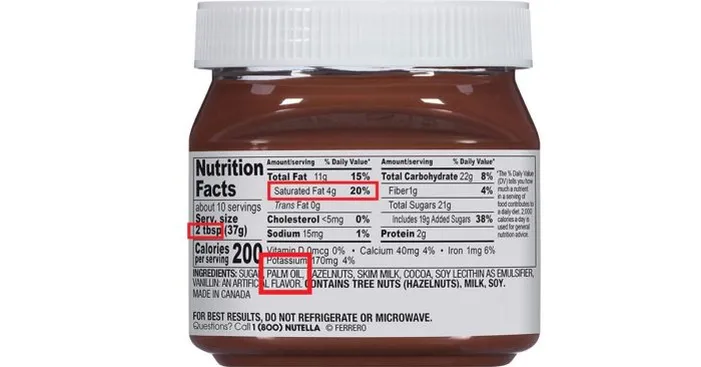
Since we can find processed palm oil in many processed food like peanut butter, chocolate, and even pizzas, it may seem very difficult to quit using it!
However, most food industry regulators are now required to indicate which vegetable oil they used in the product.
In case you still find a product label that says “vegetable fat” or “vegetable oil” it probably refers to processed palm oil as well.
Replacing palm oil:
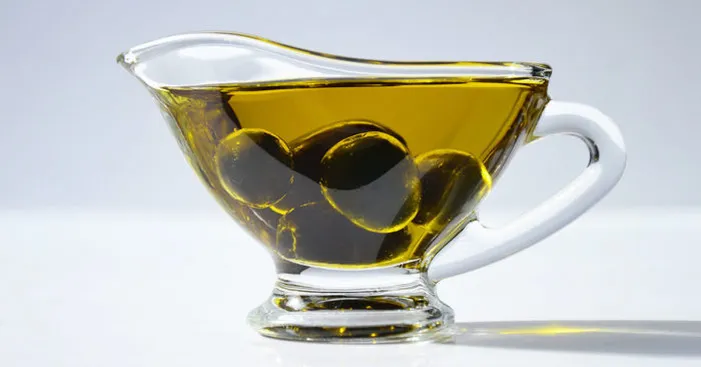
In a healthy balanced diet, we need to ensure that we get enough lipids from different sources.
Margarine does not contain palm oil and you can use it as a substitute for processed palm oil in any recipe.
The best lipids are the ones with higher unsaturated fats like olive oil, soy oil, or rapeseed oil.
These oils can be a healthier replacement for processed palm oil.
Coconut oil is a better alternative to palm oil and you can use it, especially in baking recipes.
Also, to cut off any possible intake of palm oil you may as well cook your own sauces, cakes, and dishes instead of buying them.
It is always healthier to cook your own food as you will have total control over the ingredients.
You can even find homemade recipes for all the famous food including homemade Nutella.
Finally, the best safe alternative would be to use organic palm oil in cold preparations like salad dressing.
Is cold-pressed palm oil also bad for you?
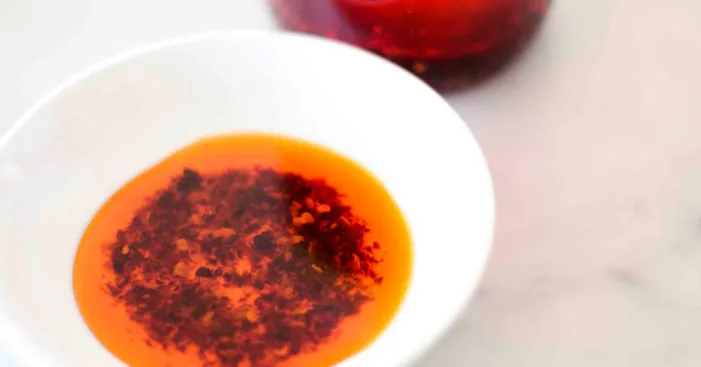
Because processed palm oil is dominating in terms of consumption, you are led to believe that palm oil is bad for you in general.
But these are unjustified claims because, in its natural state, palm oil does offer many health virtues.
Nutritional composition:
Cold-pressed and organic palm oil actually contains elements that can reduce the risk of cancer and heart diseases.
Here’s what you should retain: plants do not produce cholesterol, only animal sources can produce cholesterol.
The trans fatty acids in processed palm oil are the result of the extensive processing that manufacturers use.
Therefore, organic palm oil is free of trans fatty acids and contains unsaturated and saturated fats in their natural states.
In addition, organic palm oil is a good source of carotenoids, essential fatty acids, and tocopherol which have good antioxidant properties.
In fact, palm oil in its natural state contains the highest vitamin E content compared to all vegetable oils.
For the same amount of 2 tbsps, organic palm oil offers 28% of the daily need in vitamin E which is higher than olive oil (26%), corn oil (26%) soy oil (16%).
Not only that, but virgin palm oil also offers more vitamin A than oranges, bananas, carrots…
These two vitamins (E and A) contribute to the health of the eyes, the brain, the prevention of tumors…
Health benefits:

Here are some of the health benefits you can get from organic palm oil:
Strengthens the body’s immunity:
By providing 28% of the daily need per serving of 2 tbsp, palm oil would protect us from free radicals and boost our immunity.
A well-activated immune system means a lower risk of getting a disease from viruses, germs, and parasites.
Prevents vitamin A deficiency:
A couple of studies confirm that RPO serum (Red palm oil) has shown great results in countering Vitamin A deficiency in Sub-Saharan Africa.
In fact, red palm oil has almost the same benefits as vitamin A supplements when dealing with a vitamin A deficiency case.
Good for the heart:
Consuming organic palm oil in appropriate amounts is good for the heart.
This is mostly thanks to the high antioxidant profile in this oil including palm oil phenolics (PPO) which can reduce the risk of heart disease.
Maintains brain health:
Many studies show the good effect of tocotrienol in maintaining brain health.
This type of vitamin E is present in cold-pressed palm oil and it can reduce the risk of brain strokes, dementia, and tumors.
Precautions in case you want to use palm oil:

Even though there are many health benefits related to cold-pressed palm oil, it is rare to find and most products are processed.
Some people can tolerate the occasional consumption of processed palm oil but other people may experience serious health issues.
In case you want to use it still, here is what you need to know:
Bad production techniques:
Most of the palm oil you find in the market is heavily processed and refined to make it suitable for culinary usage.
Refining and oxidizing techniques often decrease the health benefits of palm oil which makes it bad for you.
Therefore, make sure you use “unrefined” or “cold-pressed” palm oil which is a healthier choice.
Conflicted studies:
Several studies show the good effect of palm oil in reducing cholesterol levels…
Nonetheless, other studies claim that red palm oil raises bad cholesterol levels for certain people.
The only possible explanation is that some of the studies were done using processed palm oil and other studies were done on organic palm oil.
Thus, if you insist on using palm oil make sure you use it in moderation, get the organic type, or just mix it with other healthier vegetable oils.
Consume with moderation:
According to the Dietary Guidelines for Americans, saturated fats should not represent more than 10% of our daily calorie intake.
Ingesting processed palm oil will increase our palmitic acid intake, a fatty acid that causes a raise in bad cholesterol levels.
Therefore, we need to limit our consumption of this processed oil to no more than 2 tbsps a day which will give you 80% of your need in saturated fats.
People who should avoid it:
Certain people may have an allergic reaction to palm oil and they should stop consuming it as soon as they experience any allergic reaction.
Also, palm oil is not easy to digest therefore those who have a weak digestive system should avoid it.
This oil may interact with medications, and because of that people who are taking medicines should consult their doctor before ingesting palm oil.
Just like carrots, palm oil contains a good amount of carotene and some people may experience yellowing of the skin after excessive consumption.
